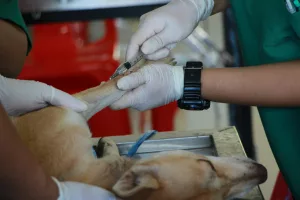Cats, much like their human companions, can experience stress, and while this can be manageable if it’s just a passing phase, chronic stress can lead to serious health issues for your beloved feline. Understanding the reasons behind your cat’s stress, recognizing the signs, and finding effective solutions can help your furry friend return to their usual, playful self. Let’s dive deeper into these aspects to better equip you with the knowledge to care for your cat. Recognizing Stress in Cats Cats display stress in a variety of ways, and these manifestations can often be mistaken for behavioral quirks. The primary indicator is a noticeable change in behavior. Here’s a deeper dive into what you might observe:
Behavioral Changes
- Nervousness and Aggressiveness: A stressed cat may become unusually aggressive. This aggression could be directed toward humans, other animals, or even inanimate objects. They might exhibit signs of nervousness, such as twitching tails or dilated pupils. For example, a cat named Whiskers might suddenly start hissing at its favorite human or swatting at toys it usually enjoys. This change in behavior is a clear sign that something is amiss.
- Withdrawal and Avoidance: Some cats might retreat into themselves, avoiding interaction and hiding for extended periods. They might no longer engage in play or show interest in their usual antics. Imagine a playful kitten like Luna, who suddenly starts spending all her time under the bed, refusing to come out even for her favorite treats. This is a strong indicator of stress.
- Change in Appetite: Stress can lead to a cat eating significantly less or more than usual. This change in eating habits can be a major red flag, especially if accompanied by weight loss or gain. A cat named Oliver, for instance, might start refusing his meals or, conversely, might begin overeating, leading to noticeable changes in his weight.
Physical Symptoms
- Excessive Grooming: While grooming is a natural behavior, excessive licking to the point of causing skin lesions or bald spots, particularly on the belly, legs, and tail, can indicate stress. This behavior, known as psychogenic alopecia, can be quite distressing to witness. If you notice your cat like Daisy obsessively grooming one area, it’s time to investigate further.
- Unwanted Urination and Defecation: A cat that suddenly starts urinating or defecating outside the litter box might be trying to communicate distress. This behavior is often a response to a perceived threat or discomfort in their environment. A cat named Felix might start using the living room carpet instead of his litter box, which can be frustrating but is a clear cry for help.
- Increased Vocalization: Noticeably more frequent meowing or yowling can also be a sign that your cat is stressed or anxious. A typically quiet cat like Muffy might start meowing loudly at night, disrupting the household and signaling that something is wrong.
Health Consequences
Chronic stress in cats can exacerbate existing health conditions or lead to new ones. One common stress-related condition is interstitial cystitis, an inflammation of the bladder that occurs without an infectious cause. This can make urination painful and frequent, further increasing your cat’s stress. Additionally, stress can lead to a weakened immune system, making your cat more susceptible to illnesses.
Causes of Stress in Cats
Understanding the root of your cat’s stress is the first step in addressing it. Cats are creatures of habit and highly territorial, so any disruption to their environment can be unsettling.
Environmental Changes
- Moving House: Relocating is a significant change that can unsettle your cat. The new environment lacks the familiar scents and safe spaces that they’re accustomed to. When Sarah moved houses, her cat, Tom, spent the first few weeks hiding in the closet, overwhelmed by the new surroundings.
- New Furniture or Rearrangement: Even something as simple as moving a piece of furniture or replacing a carpet can be distressing. Cats rely on familiar surroundings to feel secure. Consider the example of Max, who stopped using his favorite scratching post after it was moved to a different room.
- Introduction of New Animals or People: Bringing a new pet or family member into the home can be challenging. Cats may feel their territory is being invaded, leading to stress. When the Johnsons adopted a puppy, their cat, Bella, started avoiding the living room where the puppy spent most of its time.
- Routine Disruptions: Cats thrive on routine, so changes like new feeding times or different litter box locations can be unsettling. For instance, if Oscar’s dinner time was shifted by just an hour, he might become anxious and vocal.
- Loud Noises or New Neighbors: Sudden loud noises or the presence of new people in the neighborhood can make a cat feel threatened. Imagine the construction noise outside your home that makes your cat jittery and irritable.
Solutions to Reduce Cat Stress
Once you’ve identified the likely cause of your cat’s stress, it’s important to approach the solution with patience and care.
Veterinary Assistance
Consulting with a veterinarian is crucial. They can rule out any physical health issues that might be causing the stress and offer professional advice tailored to your cat’s specific needs. A vet might recommend blood tests or urine samples to ensure there’s no underlying health issue contributing to the stress.
Creating a Safe Environment
- Private Spaces: Ensure your cat has access to quiet, private spaces where they can retreat and feel safe. This could be a cozy corner in a room or a designated area with their bed and toys. For example, a small tent or igloo-style bed can offer a perfect hideaway for a stressed cat.
- Multiple Resources: In a multi-cat household, it’s essential to provide separate resources for each cat, including food bowls, litter boxes, and sleeping areas. This minimizes competition and territorial disputes. If you have cats like Ginger and Peanut, having separate feeding stations can reduce tension.
- Vertical Spaces: Cats often feel more secure when they can observe their surroundings from a height. Installing cat trees or shelves can provide them with a safe vantage point. A setup that allows Felix to perch safely and survey his kingdom can be very comforting.
- Consistent Routine: Try to maintain a consistent daily routine. Feeding, playtime, and other interactions should occur at roughly the same times each day. Cats like Molly benefit greatly from knowing when to expect meals and attention.
Interactive and Mental Stimulation
- Playtime: Engage your cat in interactive play to help burn off energy and reduce stress. Toys that mimic prey, such as feather wands or laser pointers, can be very effective. For example, setting aside 15 minutes each evening to play with your cat can make a big difference in their stress levels.
- Puzzle Feeders: These can provide mental stimulation and satisfy your cat’s hunting instincts. Puzzle feeders dispense food as your cat plays, encouraging natural foraging behavior. Introducing a puzzle feeder for Bella can transform mealtime into a mentally enriching experience.
- Calming Aids: Consider using calming products such as pheromone diffusers or sprays, which can create a more comforting environment for your cat. When Lucy was introduced to a diffuser, her frequent yowling decreased remarkably.
Dietary Considerations
Cats prefer to eat small, frequent meals throughout the day. Investing in an automatic feeder can ensure your cat has access to food when they need it, which can help reduce stress related to hunger or food insecurity. For cats like Tigger, who get anxious if meals are late, an automatic feeder can be a game-changer.
Common Mistakes and How to Avoid Them
- Forcing Interaction: Never force your cat to interact if they seem stressed. Allow them to approach on their own terms. If Sammy looks uncomfortable, give him space to come to you when he’s ready.
- Ignoring the Signs: Pay attention to the subtle cues your cat gives. Early intervention can prevent stress from becoming chronic. If you notice changes in behavior or habits, don’t dismiss them.
- Neglecting Vet Visits: Always rule out medical conditions with your vet. Behavioral changes can sometimes be linked to health issues. Regular check-ups can catch problems early, ensuring your cat stays healthy.
- Overstimulating: While play and interaction are important, too much can overwhelm a stressed cat. Balance is key. If Fluffy seems tired or disinterested, it might be time to take a break.
Real-Life Example: Case Study
Consider the case of Bella, a four-year-old tabby who started urinating outside her litter box. Her owners had recently moved to a new home and noticed she was also hiding more often. After consulting their veterinarian, they learned Bella was stressed due to the move and the unfamiliar environment. The vet recommended setting up a cozy corner with Bella’s favorite blanket and toys, and using a pheromone diffuser to help her adjust. Within weeks, Bella’s behavior improved, illustrating the effectiveness of targeted interventions.
Another example is the story of Max, a two-year-old Siamese who became aggressive after the arrival of a new baby. Max’s owners worked with a behaviorist to gradually acclimate him to the baby’s presence by associating the baby with positive experiences, such as treats and playtime. Over time, Max became more comfortable and less aggressive.
Final Thoughts
Helping your cat navigate stress involves understanding their behavior, identifying stressors, and creating a supportive environment. By being attuned to their needs and providing a stable, enriched environment, you can help your cat lead a happier, healthier life. Remember, patience and empathy are your best tools in helping your feline friend overcome stress.
As you continue to monitor and support your cat, keep in mind that every cat is unique, and what works for one might not work for another. Remain observant and flexible, and don’t hesitate to seek professional advice if needed. Your efforts will go a long way in ensuring your cat’s well-being and happiness.



